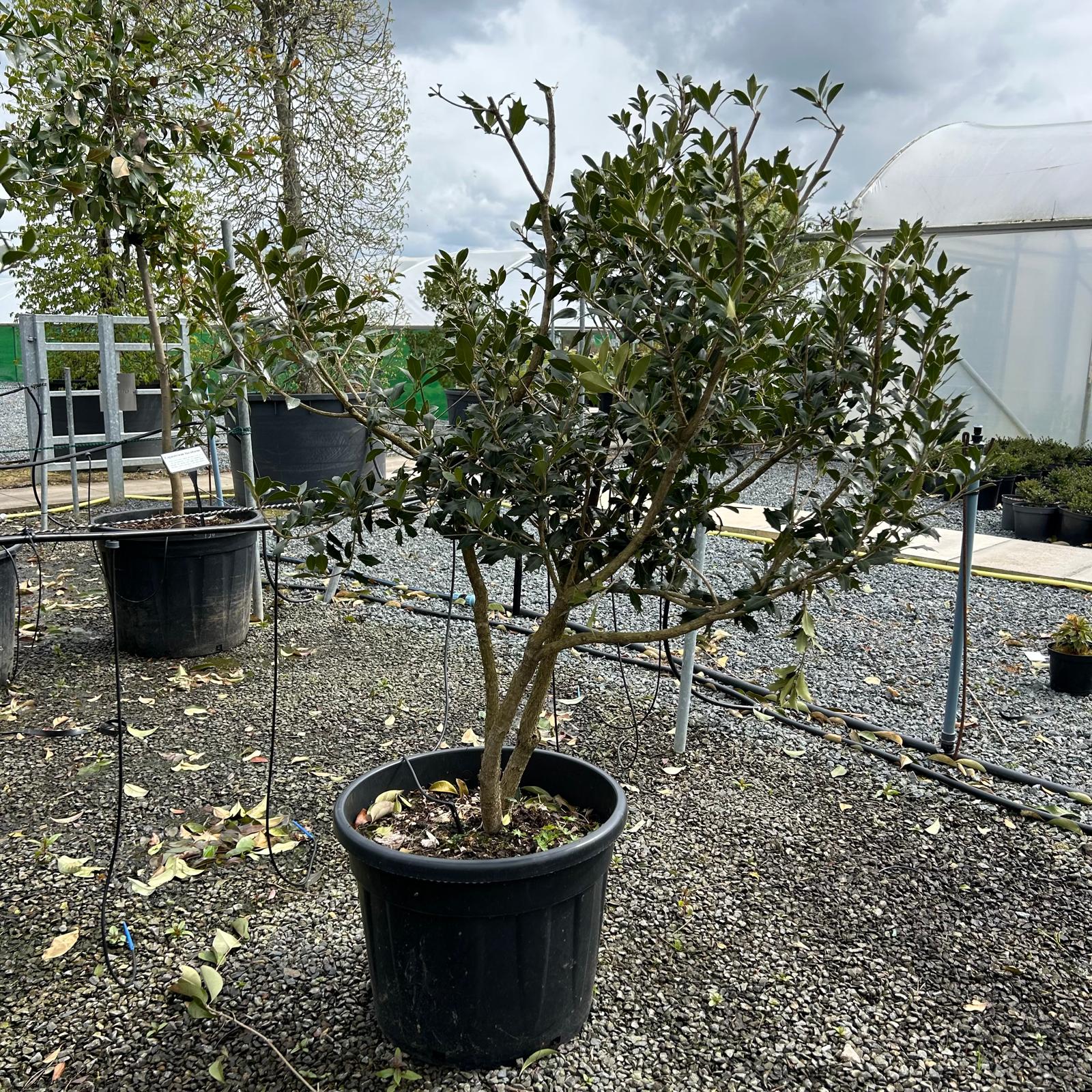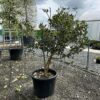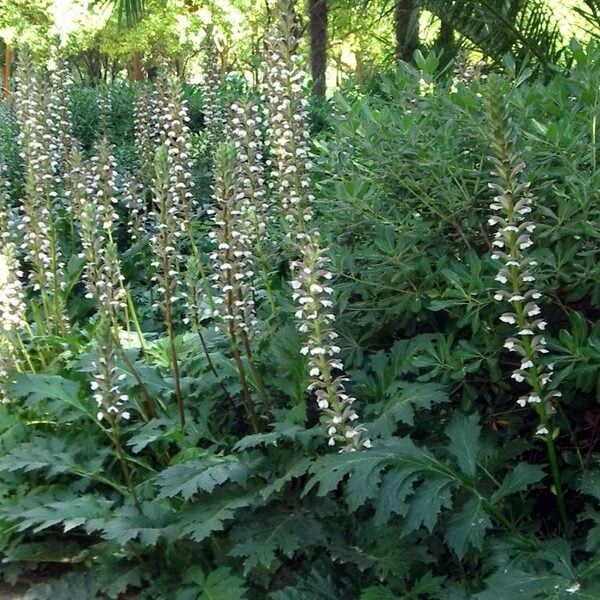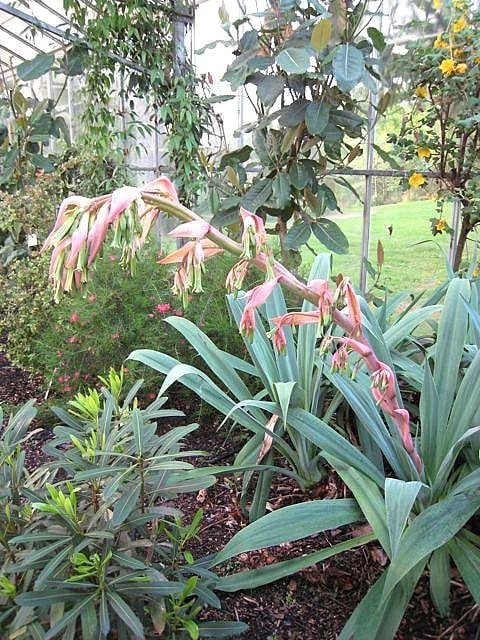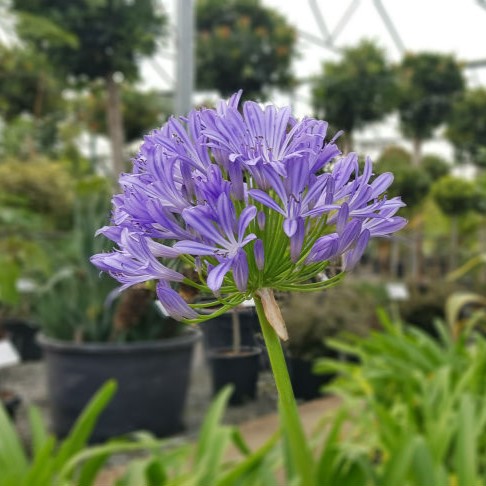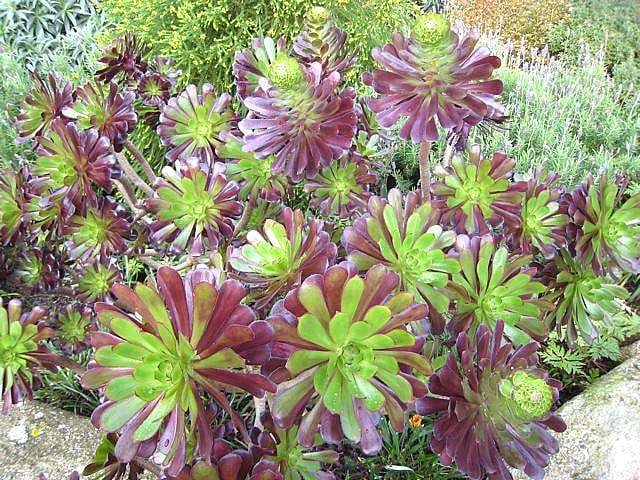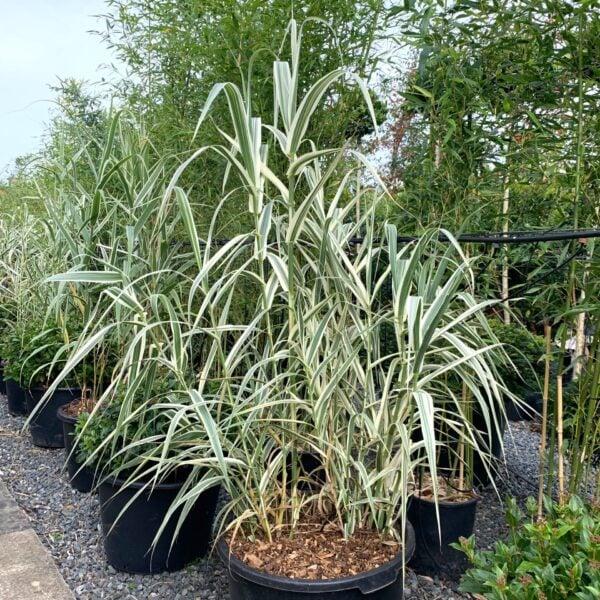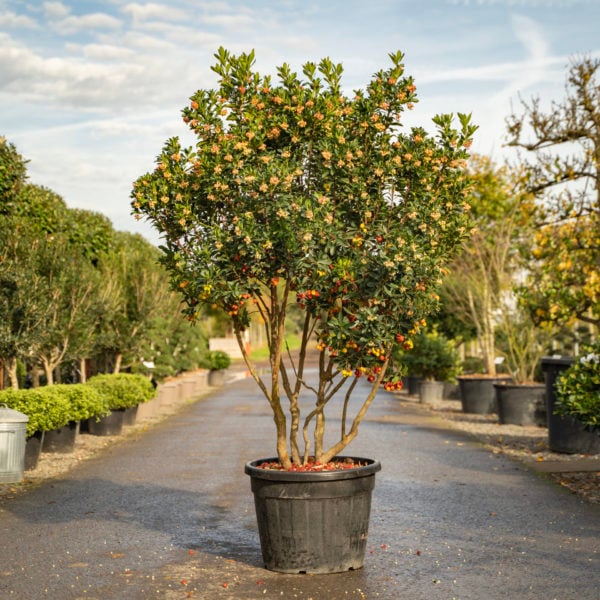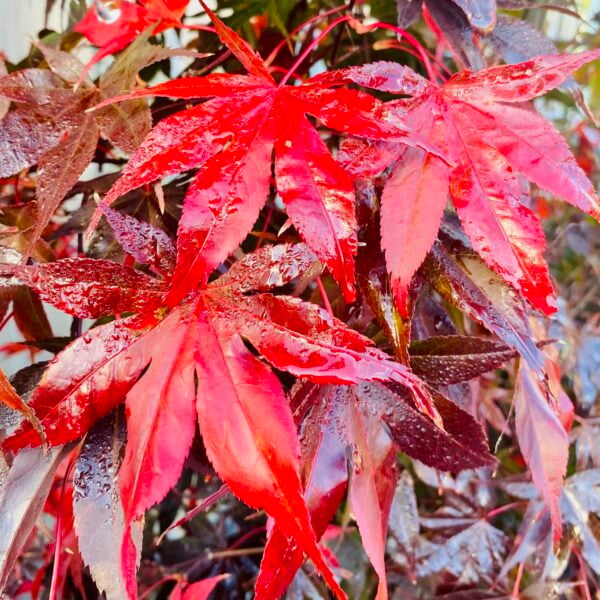Osmanthus heterophyllus – Multi Stems
From 355.00 incl. VAT
Dense-leaved evergreen shrub with pretty, glossy tooth-edged foliage and scented flowers in autumn. The foliage of these shrubs is indeed dense, which gives them a solidity of form that we love. But they are also delicately-textured and there’s a softness to them that belies their hardiness.

Hardiness level Amber
Dense-leaved evergreen shrub with pretty, glossy tooth-edged foliage and scented flowers in autumn. The foliage of these shrubs is indeed dense, which gives them a solidity of form that we love. But they are also delicately-textured and there’s a softness to them that belies their hardiness. Making a fantastic contrast with larger-leaved or more coarsely-textured trees and shrubs, Osmanthus heterophyllus like these ones have been carefully cultivated and trained into a form that hovers on bare stems. You can see them and see through them: an essential dimension that we often neglect. Plants treated this way literally elevates them into a whole new category of refinement, and there’s fewer ways of adding elegant structure and instant character into your garden. The roly-poly rounded form of these shrubs sit (float?) beautifully over a selection of smaller shrubs below, rounded and clipped into blobs. Osmanthus do very well in containers too, so a couple of these in a properly big pot would make a very arresting sight. Typically tough and sanguine about soils and aspects but avoid extremely windy spots.
The Osmanthus Family
An evergreen flowering shrub familiar to many, and for jolly good reason. Tough and adaptable to a variety of aspects and soils and easily clipped into tight little shapes or left to form its own gently-rounded dome of pretty little dark green leaves, sharp-toothed like miniature Hollies, up to 2.5 metres or so high, and with a soft texture that complements bigger-leaved and more coarsely-textured neighbours. Sweetly-scented white flowers will pepper the plant in autumn. The density of growth and general hardiness of these shrubs lends them well to hedging, but we think that planting a specimen (or several) for year-round interest is the perfect way to bring a sense of maturity into new gardens and fine-textured structure into established ones: they’re so versatile. Their height and spread can be controlled with gentle pruning and they don’t seem to mind this at all. Any reasonably well-drained soil in an open but not unduly exposed position will suit them, and Osmanthus does very well in pots, probably better than many. A fine specimen sat in a pot for at least 20 years in Campo Santo Stephano near St Mark's in Venice.
N.B. When clipping several plants with the same tool, have a bucket containing a 5% bleach solution and swish your blades around for 30 seconds between plants to sterilise them. This will help avoid the chance of cross contamination of disease.
As with all woody plants, plant high, exposing as much of the taper at the base of the trunk as possible. Allowing soil to accumulate round the base of a tree can be fatal. Keep very well watered when first planted.
Additional Information |
|
|---|---|
| Size | 35L (H1.4-1.5m, W60-70cm) S50cm, 90-110L (H1.3-2.1m, W1.2-1.6m) S57-65cm, G12-15cm |
| Soil Type | |
| Light | |
| Plant Type | |
| Continent of Origin | |
| Specialist Plants | |
| Features | |
| Tree Size | |
| Situation | Coastal, Mild City Gardens, Plants for Pots, Sheltered Garden |
| Flower Colour | |
| Hardiness | |






